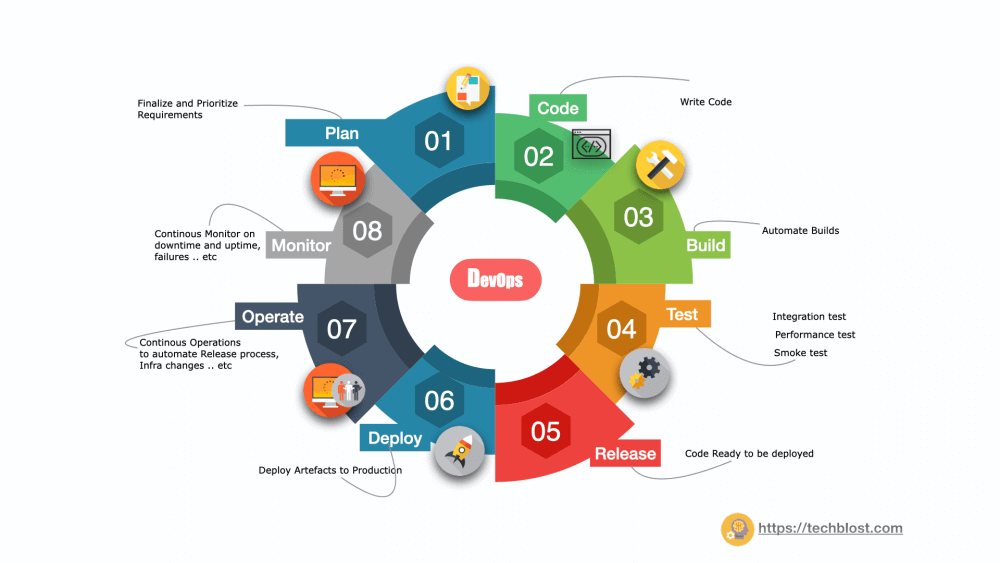First step toward DevOps
 Vaibhav Jain
Vaibhav JainTable of contents
What is DevOps?
DevOps, short for Development and Operations, is a software development approach that aims to foster collaboration and communication between software development teams (Dev) and IT operations teams (Ops). It emphasizes the integration of development, quality assurance, and operations throughout the software development lifecycle, with a focus on automation, continuous integration, and continuous delivery.
Different stages of DevOps -

The primary goal of DevOps is to enable organizations to deliver software applications and services more rapidly, efficiently, and reliably. It brings together the traditionally separate and siloed functions of software development and operations, enabling them to work together seamlessly. By breaking down barriers and promoting collaboration, DevOps encourages a culture of shared responsibility and accountability among team members.
Key principles and practices of DevOps include:
Automation: The use of automated tools and processes to streamline and accelerate tasks such as building, testing, and deploying software.
Continuous Integration (CI): The practice of regularly merging code changes from multiple developers into a shared repository. This ensures that the changes are integrated and tested as frequently as possible, reducing integration issues.
Continuous Delivery/Deployment (CD): The process of automating the release and deployment of software applications. Continuous Delivery focuses on making sure that the software is always in a releasable state, while Continuous Deployment goes a step further and automatically deploys the software to production environments.
Infrastructure as Code (IaC): Treating infrastructure provisioning, configuration, and management as code. This approach allows infrastructure to be version-controlled, tested, and deployed using the same practices as software applications.
Monitoring and Logging: Continuous monitoring of applications and infrastructure to detect issues and ensure optimal performance. Logging helps in capturing and analyzing relevant information for troubleshooting and improvement.
Collaboration and Communication: Encouraging close collaboration between development, operations, and other stakeholders. This includes fostering effective communication, sharing knowledge, and breaking down organizational silos.
Agile and Lean Practices: Adopting agile development methodologies and lean principles to drive iterative development, continuous improvement, and waste reduction.
DevOps is not just a set of tools or a specific role; it is a cultural shift that promotes collaboration, automation, and shared responsibility. By implementing DevOps practices, organizations can achieve faster delivery cycles, higher quality software, improved customer satisfaction, and increased business agility.
Why DevOps is so important?
Speeds up software delivery.
Enhances collaboration and communication between teams.
Improves software quality and reliability.
Enables scalability and flexibility.
Drives continuous improvement.
Increases business agility.
By adopting DevOps, organizations can deliver software faster, work together more effectively, produce higher-quality applications, adapt to changing demands, continually improve their processes, and stay competitive in the market.
Subscribe to my newsletter
Read articles from Vaibhav Jain directly inside your inbox. Subscribe to the newsletter, and don't miss out.
Written by
